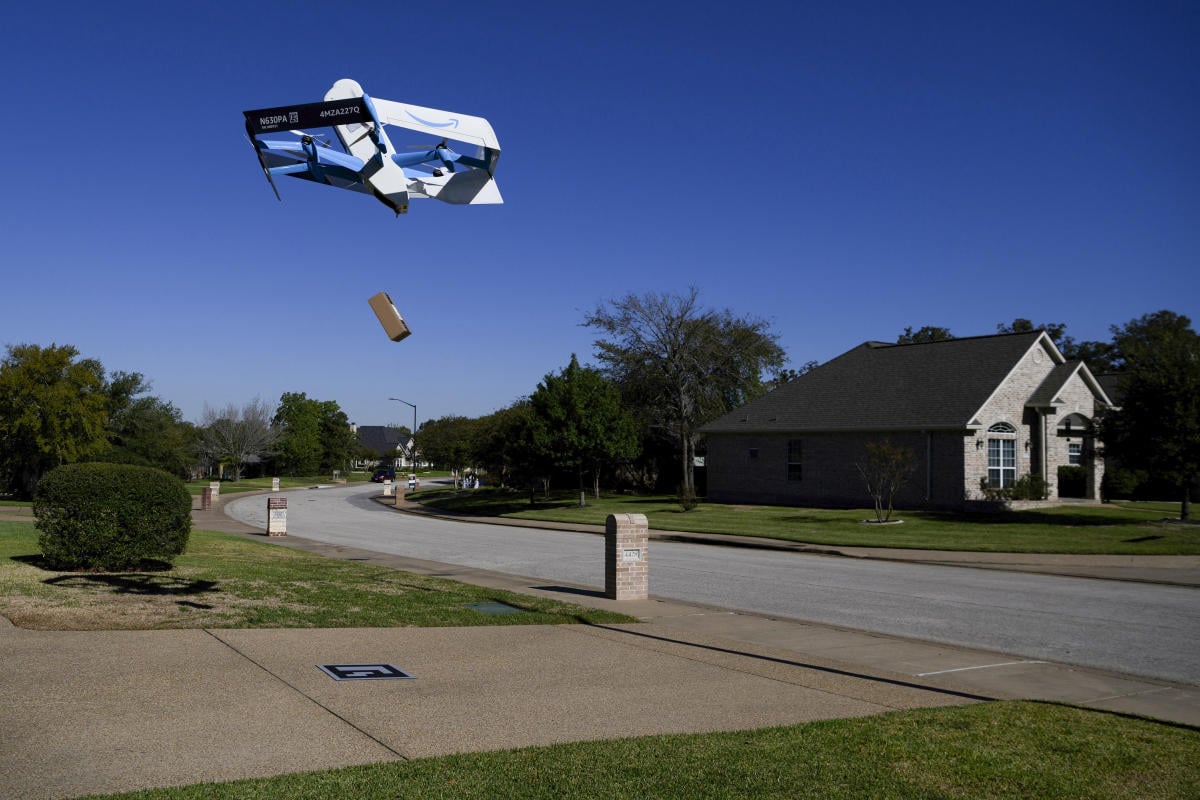Only one item can be delivered at a time. It can’t weigh more than 5 pounds. It can’t be too big. It can’t be something breakable, since the drone drops it from 12 feet. The drones can’t fly when it is too hot or too windy or too rainy.
You need to be home to put out the landing target and to make sure that a porch pirate doesn’t make off with your item or that it doesn’t roll into the street (which happened once to Lord and Silverman). But your car can’t be in the driveway. Letting the drone land in the backyard would avoid some of these problems, but not if there are trees.
Amazon has also warned customers that drone delivery is unavailable during periods of high demand for drone delivery.



What the fuck?! My cheap ass, $10 AirHog drone that is entirely plastic and foam can fly in 115F temps (as hot as it’s ever been here). What the shit kind of crappy components do Amazon’s delivery drones use?!
They’re using a very dated design because the FAA moves extremely slowly. The size, weight, and wide-scale intended use of them puts the drones in an aircraft category that comes with a lot of paperwork and stipulations.
In this case I would consider that a good thing. The day drone delivery because common will be a very noisy day.
Ew… Bureaucracy.
Flying with a payload requires a lot more lift which goes down as temps go up, plus it could be just the heating of the motors under load that have a certain limit before they tend to fail.
Maybe just a safety precaution for lipo batteries? Given the potential hazard of bursting into flame near or on a house
The primary factor is probably air density. Hot air is less dense than cold air. Humid air is less dense than dry air. High altitude air is less dense than low altitude. Hot, humid, and high, an aircraft’s available payload could be a small fraction of its cold, dry, and sea level capacity.
The difference in air density from 0°C to 45°C is only around 20%. I can’t imagine that would be enough to cause problems, assuming the drones have a decent safety margin. I think it’s more likely it’s a safety precaution for the electronics.